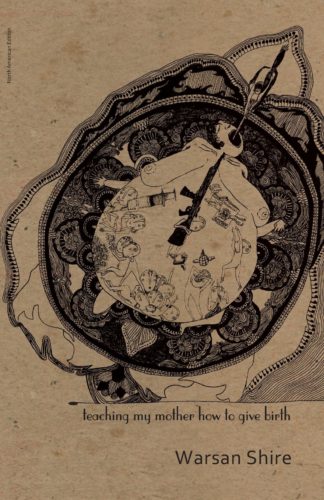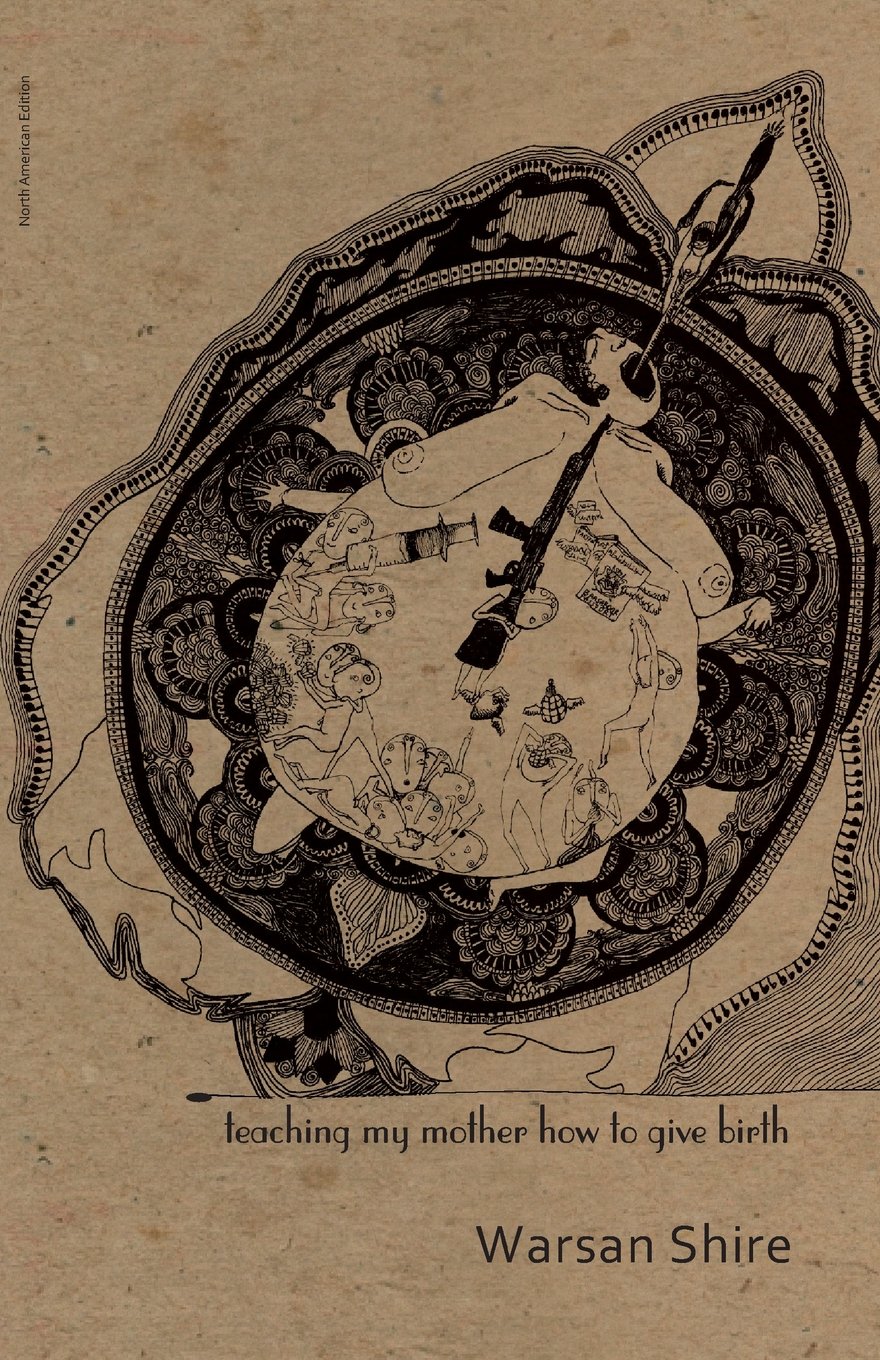Writers Read: Teaching My Mother How to Give Birth by Warsan Shire
 There is a real casual ease by which the poems in Teaching My Mother How to Give Birth present themselves. They are not struggling to find a voice, but are grounded firmly in their style and language. This little chapbook feels solid, weighty, and Shire does a fine job of creating consistency in such a short amount of space. Particularly, her poetry in this small chapbook is marked by a strong sense of narrative, clear scene work, fresh body imagery, and a thematic consistency around femininity.
There is a real casual ease by which the poems in Teaching My Mother How to Give Birth present themselves. They are not struggling to find a voice, but are grounded firmly in their style and language. This little chapbook feels solid, weighty, and Shire does a fine job of creating consistency in such a short amount of space. Particularly, her poetry in this small chapbook is marked by a strong sense of narrative, clear scene work, fresh body imagery, and a thematic consistency around femininity.
Though the chapbook is bookended by two very short poems, most of the pieces include distinct things happening to distinct characters in distinct places. For instance, in the second poem, “Your Mother’s First Kiss”, in four quatrains we move through four scenes, dislocated in time. The first is clear: “she remembers hearing this/ from your uncle, then going to your bedroom and lying/ down on the floor. You were at school.” Then the second, “Your mother was sixteen when he first kissed her.” The third, “the friend laughed, mouth bloody with grapes,/ then plunged a hand between your mother’s legs.” And the final quatrain: “Last week, she saw him driving the number 18 bus” (8). Shire builds a small narrative of rape and its consequences rolling out through time on the mother’s life in 16 lines.
On page 11, the poem “Grandfather’s Hands” also really plays into one of Shire’s strengths: talking about/to the body. We have nine stanzas, couplets and triplets mixed, and each one includes a close-up on the grandfather or grandmother’s body. We move from knuckles being kissed, fingers tracing shapes in a palm, wet fingers dragging across the soft flesh of his wrist—“Some nights his thumb is the moon/ nestled just under her rib.” Though the zooming in is unrelenting, the poem is also relaxed, intimate. If any of these poems called itself into being with indifference to its author, it was this one.
“Grandfather’s Hands” and “Your Mother’s First Kiss” are only two examples of many, and with this hyper focus on body imagery and scene building, Shire seems at once to ground and transcend her usual themes—ground them because the reader’s body is being activated, spoken to so directly. Your wrist feels the wet lips, your palm the tracing, your mouth aches to bite something. But the poem also transcends, draws your attention above themes of innocence or violence or the oppressiveness of patriarchal authority.
Shire, Warsan. Teaching My Mother How to Give Birth. flipped eye publishing limited; Mouthmark edition, 2011.







